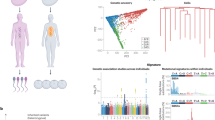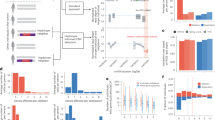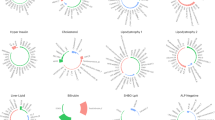Abstract
IT has been shown by paper electrophoresis that genetically different types of β-lactoglobulin1,2 and α-lactalbumin3,4 occur in cow's milk. While genetic polymorphism of β-lactoglobulin is general among the cattle of different countries, that of α-lactalbumin has only been observed in two breeds of African zebus, the Nigerian White Fulani3 and the boran4 cattle of Kenya, but not in Icelandic, British3, Danish5 and North American6 (Holstein) cattle. Blumberg and Tombs noted the Nigerian White Fulani cattle to be similar in appearance to the ‘Brahmin’ cattle of the East, which were probably brought into Africa by the nomadic Fulani people, and suggested that α-lactalbumin-A might serve as a marker by which the affinities of the zebu cattle, and indirectly of the Fulani people associated with them, could be traced. We have now examined the α-lactalbumin and β-lactoglobulin polymorphism in Indian zebu cattle with the view of getting further information on this aspect. Moreover, from a comparison of electrophoretic patterns of non-casein proteins of African zebu3 and Indian buffalo milk7, the mobilities of zebu α-lactalbumin-A and of the single buffalo α-lactalbumin appeared to be approximately the same. This indicated that these two proteins might have closely similar physico-chemical properties as has been observed7–9 in the case of cow β-lactoglobulin-B and the single buffalo β-lactoglobulin.
This is a preview of subscription content, access via your institution
Access options
Subscribe to this journal
Receive 51 print issues and online access
$199.00 per year
only $3.90 per issue
Buy this article
- Purchase on Springer Link
- Instant access to full article PDF
Prices may be subject to local taxes which are calculated during checkout
Similar content being viewed by others
References
Aschaffenburg, R., and Drewry, J., Nature, 176, 218 (1955).
Aschaffenburg, R., and Drewry, J., Nature, 180, 376 (1957).
Blumberg, B. S., and Tombs, M. P., Nature, 181, 683 (1958).
Aschaffenburg, R., in Man and Cattle, Symp. on Domestication (Roy. Anthropol. Soc., London) (in the press).
Moustgaard, I., Møller, I., and Harskov-Sørensen, P., Ann. Rep. Roy. Vet. and Agrie. Coll. Copenhagen, 114 (1960).
Plowman, R. D., Townsend, R. E., Kiddy, C. A., and Timasheff, S. N., J. Dairy Sci., 42, 922 (1959).
Sen, A., and Sinha, N. K., Nature, 190, 343 (1961).
Sen, A., and Sinha, N. K., in Symp. Electrochemistry (Nat. Inst. Sci., India) (in the press).
Sinha, N. K., thesis, Calcutta Univ. (1962).
Aschaffenburg, R., and Drewry, J., Biochem. J., 65, 273 (1957).
Gordon, W. G., and Semmett, W. F., J. Amer. Chem. Soc., 75, 328 (1953).
Wetlaufer, D. B., Compt. trav. Lab. Carlsberg, 32 (9), 125 (1961).
Author information
Authors and Affiliations
Rights and permissions
About this article
Cite this article
BHATTACHARYA, S., ROYCHOUDHURY, A., SINHA, N. et al. Inherited α-Lactalbumin and β-Lactoglobulin Polymorphism in Indian Zebu Cattle. Comparison of Zebu and Buffalo α-Lactalbumins. Nature 197, 797–799 (1963). https://doi.org/10.1038/197797b0
Issue Date:
DOI: https://doi.org/10.1038/197797b0
This article is cited by
-
Comparative studies of α-Lactalbumin and lysozyme: Echidna lysozyme
Molecular and Cellular Biochemistry (1974)
-
Identity of Cow β-Lactoglobulin ‘B’ and Buffalo β-Lactoglobulin
Nature (1965)
Comments
By submitting a comment you agree to abide by our Terms and Community Guidelines. If you find something abusive or that does not comply with our terms or guidelines please flag it as inappropriate.



